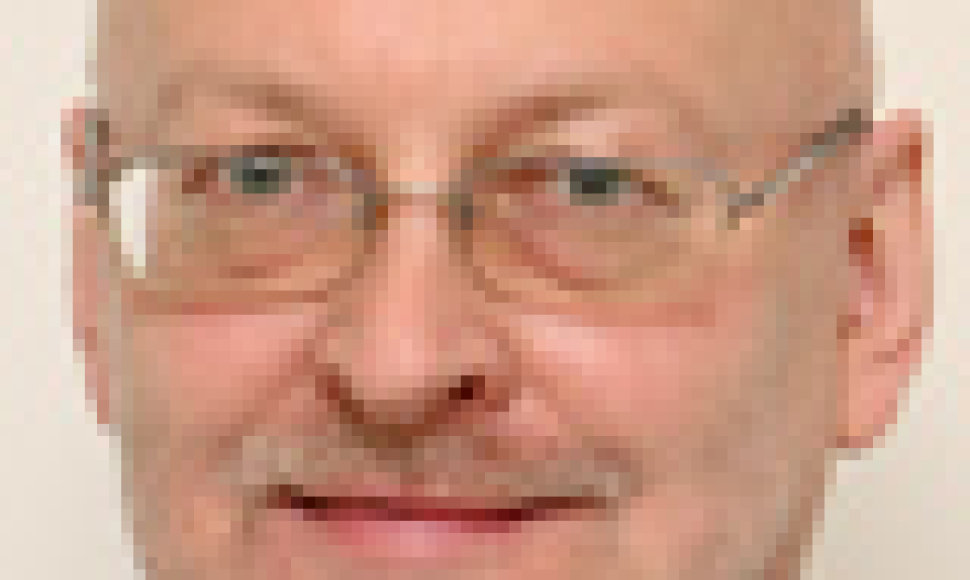No problem. It will not. The president herself has agreed to throw her first reception in four years – they'll swim through the presidency easily. They'll manage to book the hotels, make sure that cars and mikes arrive on time, say a toast or two, and pour a glass.
What is this presidency? A bureaucratic game. Exciting for politicians, officials, and diplomats. What about the rest of the nation? Some might be excited, others might not. The presidency over the EU Council cannot be Lithuania's ambition.
And what should be Lithuania's ambition? The Grand Dukes' Palace that has already cost us several hundred millions and will be finally opened on Saturday? A new nuclear power plant that the president will not rest without?
No, no, and once again no.
Neither the Grand Dukes' Palace nor the nuclear power plant will make Lithuania rise – and not even an LNG terminal that the country really needs. What separates us from countries like Germany is not progressive tax or better pay, important though these are. When will Lithuania be comparable to Germany?
Only when there are no more houses with poisonous asbestos roofing. Or when we tear down the last outdoor squat toilet. When every house has a roof with no health hazards and every household a decent bathroom.
When was the moment in history when Lithuania Minor parted ways with Lithuania Proper and Samogitia? Indeed, when it introduced compulsory primary education. And when did it begin differing visually? When, in the early 1800s, the King of Prussia ordered his peasants to build squat toilets.
If Lithuania's government wanted a challenge, it could have taken an outside look at the country presiding over Europe. Do the prime minister, chairmen of parliamentary European affairs committees know how many households in Lithuania lack basic sanitation? Do they know how many people in the 21st century still use stinky outdoor squatters?
A truly ambitious programme aimed at lifting the country to a new qualitative level could be called 'Lithuania without asbestos roofs and outdoor squat toilets.'
A survey carried out a year ago has shown that every sixth Lithuanian lives like that. In actual fact, the rate might be one in five or even four. Even though Lithuania has been in the EU for nine years, we do not have reliable statistics on basic living conditions.
And how many asbestos roofs are there in the country presiding over the EU?
Most houses in the countryside, including state-owned manors and other buildings, are roofed with slates that emit poisonous dust. The entire country is covered with asbestos slating that has been banned in the EU for eight years. We will feel its true killing power in a decade or two, when it starts crumbling.
Gay parades, nuclear power plants, and LNG terminals will not save us from energy dependence or spiritual belonging to the East. To put it frankly – outdoor squat toilets and asbestos roofing are signs of the Eurasian realm. Of dependence on Russia. And vice-versa, a modest shower and a toilet in every household means belonging to the Prussian realm.
Civil dignity begins with personal hygiene. Clean clothes. Clean shoes. Washed car. Clean streets without dust. Buildings that are not crumbling from neglect and covered in graffiti.
Is civil dignity possible in a country where, in the 21st century, over 500 thousand citizens have no plumbing, shower, or decent toilets?
Until all people in Lithuania have access to showers, until their roofs are not emitting poisonous asbestos dust, there is little point in speaking about energy or any other kind of independence from Russia. Because that would only amount to profanation. Just like the recent report by the State Security Department.
To conclude with, a truly ambitious programme aimed at lifting the country to a new qualitative level could be called “Lithuania without asbestos roofs and outdoor squat toilets.” Only then will every Lithuanian feel like a true European – when their everyday life is different from a Russian's or a Belarusian's.
Will it cost? Certainly. Dignity is not a dress from a second-hand shop. But not having civil dignity costs Lithuania even more. After all, it will not cost more than a new nuclear power plant. While the benefit it will bring – both spiritual and economic – is irrefutable.
How to do it? Where to start? Let's start from where the King of Prussia started. From setting a clear goal. From deciding how to employ EU funds intended for infrastructural development. From replacing a bureaucratic view on things with a humane one.
Not a single government, not a single parliamentary majority, right or left, has ever showed interest in it.
Isn't it plainly cynical that a person from a rural area is not eligible for the Asbestos programme unless he or she has engaged in economic activity over the last two years? Spend two years with your kids inhaling asbestos dust, get cancer or asbestosis – then we might give you money to change the roof.
The “how” is up to the government to figure out. The government which does it, will have earned the credit for bringing Lithuania to Europe. It will be the best government since Sigismund Augustus' 16-century Wallach reform.
Only the candidate who will build his or her platform on a programme for eliminating asbestos and outdoor squatters will be worthy of becoming president.
Let's do it? The ball is yours, ladies and gentlemen ministers and candidates. Or will you continue mumbling something about nuclear power and shale gas? Or indulging in conspiracy theories about someone trying to conquer Lithuania?













